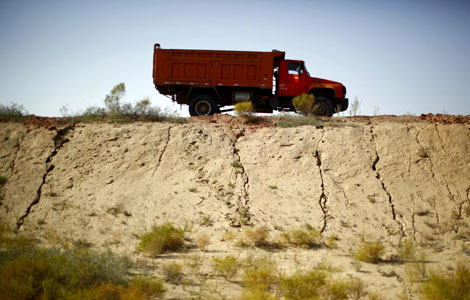Abe blames China for defense spending
Updated: 2013-09-27 07:03
By Zhang Yunbi (China Daily)
|
||||||||
Comparing military budgets of Beijing, Tokyo is flawed: experts
In outspoken remarks before addressing the United Nations General Assembly in New York on Wednesday, hawkish Japanese Prime Minister Shinzo Abe made an indirect reference to China in an effort to justify his country's rising defense budget.
Speaking to the Hudson Institute think tank, Abe said "an immediate neighbor" of Japan has been increasing military spending by more than 10 percent annually, Agence France-Presse reported.
"So call me, if you want, a right-wing militarist," he said.
Abe added that the Japanese government has increased its defense budget by only 0.8 percent annually.
But Abe avoided the fact that the defense expenditure per capita in Japan is still several times higher than it is in China, experts said.
Wu Huaizhong, a researcher on Japanese foreign and defense policies at the Institute of Japanese Studies at the Chinese Academy of Social Sciences, said the budget comparison is flawed.
"Tokyo's logic is incorrect. It has overblown China's increasing military strength as a threat and then increased defense spending for the remote islands in the southwest," Wu said.
Tokyo plans to increase its defense budget in fiscal year 2014 by 3 percent, and the total budget - $49.1 billion - represents the largest in 22 years, Japan's Kyodo news agency reported.
In the budget plan for fiscal year 2014, the Japanese Defense Ministry is seeking $4.5 million to "boost reconnaissance on Chinese warships' telecommunication" when the vessels are en route to the Pacific Ocean, according to Japan's Jiji news agency.
New facilities will be built on the "remote islands" because the Chinese military has implemented "a growing number of operations in the Pacific Ocean", the report said.
The Chinese Ministry of National Defense said on Thursday that Chinese military vessels and aircraft have gone to the western Pacific Ocean for regular training, and the moves conform to international law and accepted international practice.
'Don't overreact'
As for the lawful behavior of the Chinese military, no one should overreact, ministry spokesman Geng Yansheng said at a monthly news conference in Beijing.
Geng cited an ancient Chinese proverb in response to the Japanese allegations: "A gentleman is open and poised; a petty man is unhappy and worried."
"Whoever is overreacting has a 'ghost' (guilt) in his mind," he said.
During his speech on Wednesday, Abe signaled that he hoped to move ahead with "collective self-defense" that would allow Japan to assist its ally the United States.
Yet Japan's post-World War II Constitution, in effect since 1947, stripped the nation of its right to wage war, and under its current interpretation, Tokyo cannot use force except in the narrowest definition of self-defense.
Japan's victimized neighbors in Asia - including China and South Korea - have long expressed concerns about the growing assertiveness of Japan's defense policy and the expressed desire of some Japanese politicians to lift the constitutional restriction on military expansion.
The Japanese leader once again underscored what he and his colleagues have frequently mentioned as "active pacifism".
Yang Bojiang, a Japanese studies expert at the Chinese Academy of Social Sciences, said "active pacifism" appears to mean that Tokyo will actively appear to seek peace, but the policy will be a ruse.
"In essence, the Japanese government is shifting its defense strategy gradually from a defensive one to an offensive one," he said.
Zhangyunbi@chinadaily.com.cn
(China Daily USA 09/27/2013 page17)
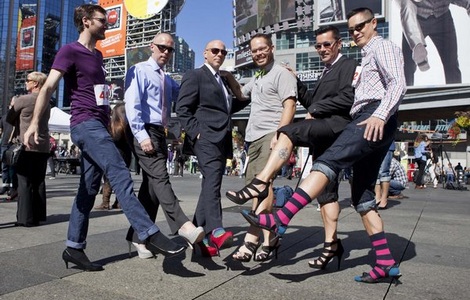
 Making a wobbly stand on violence against women
Making a wobbly stand on violence against women
 Serena Williams back to Beijing for new crown
Serena Williams back to Beijing for new crown
 'Battle of the sexes' to start China Open
'Battle of the sexes' to start China Open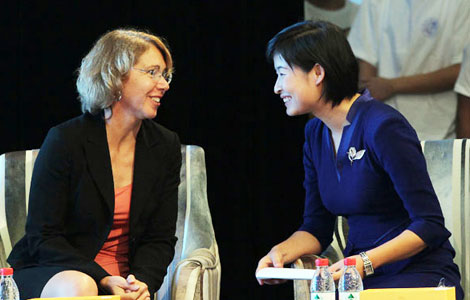
 US astronaut praises China's space program
US astronaut praises China's space program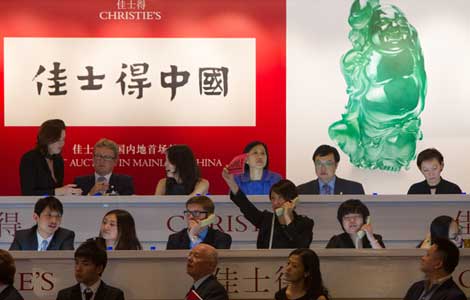
 Christie's holds inaugural auction
Christie's holds inaugural auction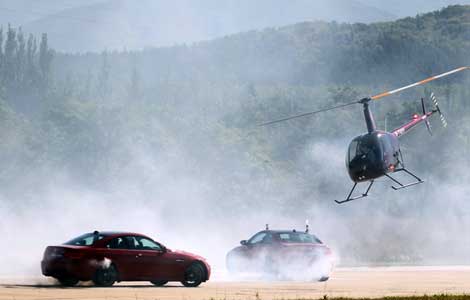
 Aviation gains from exchanges
Aviation gains from exchanges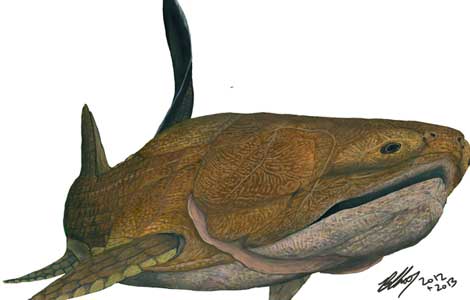
 Early fish ancestor found
Early fish ancestor found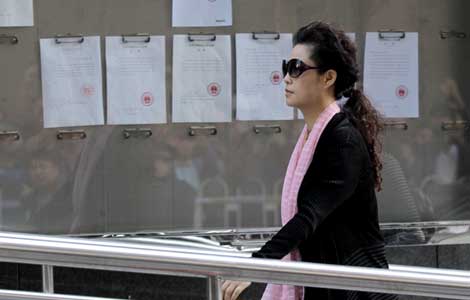
 Singers' son sentenced to 10 years for rape
Singers' son sentenced to 10 years for rape
Most Viewed
Editor's Picks

|

|

|

|

|

|
Today's Top News
US arms sales to Taiwan still sticking point
US Senate panel drafting bill to limit NSA spying
Popularity of Brazilian president rebounds: poll
UN to draft resolution on Syria's chemical weapons
China urges package deal on Iran's nuke issue
Can the 'Asian pivot' be saved?
Trending news across China
US firms pin hopes on financial liberalization
US Weekly

|

|



